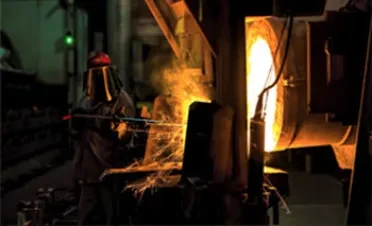small metal stamping parts
Understanding Small Metal Stamping Parts Applications and Benefits
In the field of manufacturing, small metal stamping parts play a critical role across a multitude of industries, from automotive and aerospace to electronics and medical devices. Metal stamping refers to the process of creating metal parts by shaping them using a die, which presses or forms the metal into the desired shape. This method is particularly advantageous for producing high volumes of small, precise components that are essential in various applications.
What Are Small Metal Stamping Parts?
Small metal stamping parts are typically defined as components that are produced using a stamping process and are small in size, often measuring just a few millimeters in diameter. These parts can come in various shapes, including brackets, clips, connectors, housings, and many others. They are usually made from various metals, including stainless steel, brass, aluminum, and copper, depending on the intended application and required properties such as strength, corrosion resistance, and electrical conductivity.
The Stamping Process
The stamping process involves several steps, including material selection, design, and the actual stamping operation. Initially, a metal sheet is chosen based on the specific needs of the product being manufactured. Next, an engineer designs the die, which will shape the metal during the stamping process. Once the die is created, the metal sheets are fed into the stamping press, where they are shaped with precision and efficiency.
The process can include various operations such as blanking (cutting out shapes), piercing (creating holes), bending, and forming. Advanced techniques like progressive die stamping combine multiple operations into a single step, allowing for increased efficiency and reduced manufacturing time.
Applications of Small Metal Stamping Parts
Small metal stamping parts are used in an array of applications across numerous industries
1. Automotive Industry These parts are essential for vehicle assembly. Components like clips, brackets, and fasteners are often produced through metal stamping. They contribute to the structural integrity and functionality of vehicles.
2. Electronics In the electronics sector, small metal stamping parts are employed in devices like smartphones, computers, and appliances. These components often relate to electrical connections, shielding, and structural support.
3. Medical Devices Precision is paramount in the medical field. Small stamped parts are used in manufacturing instruments, surgical tools, and implantable devices. The ability to create highly accurate components is vital for ensuring safety and functionality.
small metal stamping parts

4. Aerospace The aerospace industry requires lightweight yet durable components. Small metal stamping allows manufacturers to produce parts that meet stringent weight and strength standards while being cost-effective.
5. Consumer Products Various household items and consumer goods rely on small stamped metal parts for assembly and functionality.
Benefits of Metal Stamping
The benefits of using small metal stamping parts are numerous
1. Cost-Effectiveness Once the initial die is produced, the cost per unit decreases significantly with mass production. This makes it a financially attractive option for manufacturers.
2. Precision and Consistency Metal stamping allows for the production of highly accurate parts, which is crucial for applications that require tight tolerances and consistency.
3. Efficiency The stamping process can be automated, leading to faster production times. This is particularly advantageous for high-volume manufacturing.
4. Versatility Metal stamping can accommodate different materials and can be adapted to create a variety of shapes and sizes based on specifications.
5. Reduced Waste The stamping process optimizes material use, as it allows for careful cutting and reshaping of metals, leading to minimal waste.
Conclusion
In summary, small metal stamping parts are integral to modern manufacturing, providing essential solutions across various industries. The efficiency, precision, and versatility of metal stamping make it a preferred choice for producing components that meet today’s rigorous quality and performance standards. As technology advances, the methods and applications of metal stamping will continue to evolve, supporting innovation in products and processes across the globe.
-
Precision Casting AI Solution with GPT-4-Turbo | Optimized QualityNewsAug.02,2025
-
Precision Sheet Metal Stamping Manufacturer | Fast & ReliableNewsAug.01,2025
-
OEM Sand Cast Pump Valve Fittings - Baoding Hairun Machinery And Equipment Trading Co., Ltd.NewsAug.01,2025
-
Custom OEM Impellers | High Efficiency & PrecisionNewsAug.01,2025
-
OEM Sand Cast Pump Valve Fittings - Baoding Hairun Machinery | Customization, Quality AssuranceNewsAug.01,2025
-
OEM Sand Cast Pump Valve Fittings - Baoding Hairun Machinery And Equipment Trading Co., Ltd.NewsAug.01,2025















